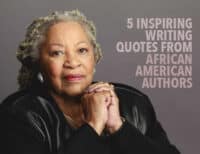Have you ever come across a line of poetry that was so clear, you could taste the description as you read it? Or a paragraph in a novel that made your skin tingle from the tangibility of it? That kind of vivid description is powerful and hard to capture, but I’ve found that there is one key trick to help you get started writing descriptions.

Description is as important as dialogue, character, or plot when it comes to telling a good story. In order to ground the reader in the setting of the piece, you have to use your senses and paint a picture so real, anyone could close their eyes and see it exactly as you described it.
What’s one way to practice this difficult process?
Utilize nostalgia
Nostalgia is a powerful thing. Just one glimpse of an old stuffed animal or a whiff of a baked good can send us reeling through memories we’d forgotten we still had.
If a hint of a single sense can cause us to remember something from our childhood in vivid detail, surely by conjuring up entire moments from our lives we can practice not only writing descriptions, but creating a whole scene that lives and breathes on the page.
Remember your sense of smell
Our sense of smell is the one most closely linked with our memories, and also works to affect our emotions. If you’re not sure where to start when attempting to practice writing descriptions, start with a very specific scent.
The smell of sunscreen could spark memories of family vacations to the beach or poolside shenanigans with childhood friends. Maybe freshly mown grass causes you to remember summer barbecues in the backyard. Vanilla and cinnamon might prompt holiday memories, ones of baking cookies with relatives and cradling steaming cups of cocoa.
All of these scents and more can provide the necessary inspiration to get yourself started on writing a section of description.
Other prompts
If you’re having trouble picking a scent to start with, try something else. There are several common memories everyone experiences, but in different ways. This is an excellent way to write a piece that is uniquely yours and yet easy for readers to relate to.
Some ideas for memories to write about:
- Your childhood home
- A time you cooked a meal with a family member
- Your first crush
- Playing at the park
- A snowball fight
- Attending a play or concert
- Going to the library
- Recess
- A wedding
- A funeral
- Summer camp
The list goes on and on. Most people may have attended a concert, but yours is yours alone, different from anyone else’s.
What band did you see? Was it a blaring rock band or a solo indie artist? Was it crowded or intimate? Outdoors or indoors?
Write about your experience, and everyone can find a little piece of themselves within it.
What makes description work
The reason why writing about a childhood or nostalgic memory is such a good exercise in writing description is because description is always more powerful when there is an emotional attachment to it.
There’s nothing all that special about a batch of chocolate chip cookies (other than the delicious gooiness when they’re fresh out of the oven), but when the cookies were your grandmother’s recipe and the mere scent of the baking dough makes you think of her, suddenly they’re unique. Meaningful.
So try to attach some emotion to your description and watch your writing go from mundane to something exceptional.
How do you approach writing description? Do you use scent as a powerful descriptor? Let us know in the comments.
PRACTICE
Pick one very clear childhood memory (perhaps from the list of prompts above, or something else entirely) and jot down a list of every sense you can remember. This is just a regular list of senses, not a full scene of description (yet).
Once you’ve exhausted everything you can see, hear, smell, taste, and touch, take that list and try to write a full scene with them, making sure to describe all that you can.
Write for fifteen minutes. Once you’ve finished, feel free to share your work in the comments, if you’d like. Don’t forget to give your fellow writers some love, too! Have fun!







0 Comments